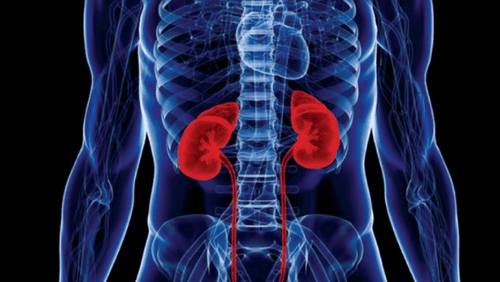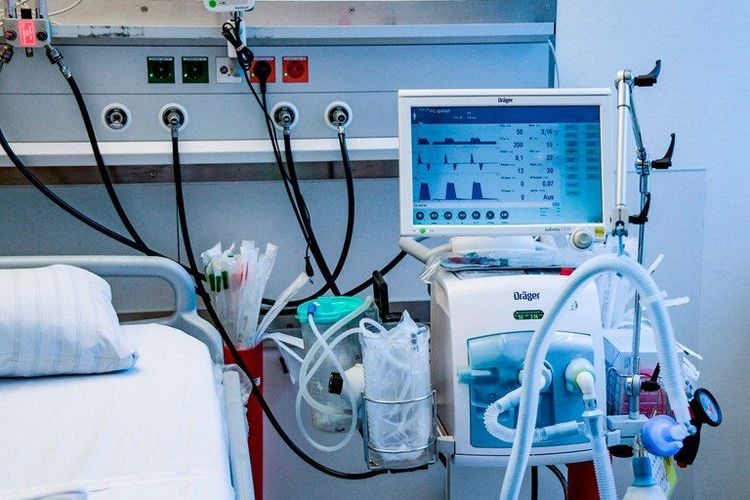This is an automatically translated article.
The article was written by MSc Ho Thi Xuan Nga - Cardiac Anesthesiologist, Cardiovascular Center - Vinmec Central Park International General Hospital.For complex congenital heart disease, it may be necessary to operate once or many times to complete the defect repair. Therefore, it is necessary to ask the surgeon to consult all possible possibilities for the patient before surgery.
1. What are the common complications in heart surgery?
Bleeding Bleeding accounts for 3-5% of causes due to many causes, due to the complexity of congenital heart disease causing multiple collaterals, coagulation disorders or pre-existing anticoagulants. surgery such as aspirin, vitamin K antagonists, or heparin anticoagulants put into the body to run an artificial heart-lung machine that has not been neutralized.In addition, the long running time outside the body also causes a deficiency of some clotting factors such as platelets, fibrinogen ... which results in bleeding difficult to stop.
In some cases, the amount of bleeding is heavy in the first hours after surgery, it is imperative to bring the patient back to the operating room to open the chest to stop the bleeding. Transfusion of blood and blood products (fresh plasma, platelets) after surgery due to intraoperative bleeding, also causes coagulation disorders and pulmonary complications, increases the rate of postoperative infection and increases the number of days in hospital. resuscitation, mechanical ventilation, increased hospital stays and surgical costs.
Infections Including ventilator-associated pneumonia, sepsis, endocarditis, wound infection, sternum infection, mediastinal infection, catheter or drain infection, even infection urine ...
Because heart surgery is usually an operation lasting from 3-6 hours, although there are prophylactic antibiotics, but with a long exposure time, the sternum is opened and the entire blood volume is run through the recirculator. outside the body, partly weaken the immune factors, antibodies to protect themselves.
In addition, after surgery, a number of heart failure conditions, requiring mechanical ventilation, patients easily get bacterial pneumonia at the hospital if the time of mechanical ventilation is more than 48 hours.
Infections of the incision site, sternum, mediastinum... also often occur in patients with open sternum, lying for a long time due to heart failure or having many catheters through the chest wall such as left atrial pressure and dynamic pressure catheters. pulmonary vessels ...
Sepsis , infective endocarditis ... are infections caused by bacteria that enter the patient's blood, come to attach to the heart valve sites, create lumps and difficult antibiotics effective, requires long-term antibiotic use, multi-type combination is expensive for patients.
In addition, some cases of malnutrition, lying for a long time or taking immunosuppressive drugs such as corticosteroids will give the fungus a chance to break out.
Renal failure Although most patients have normal liver and kidney function before surgery, in some cases due to prolonged surgery, patients suffer from renal ischemia due to extracorporeal circulation. can function according to the normal non-pulsatile mechanism, which leads to acute renal failure, decreased renal filtration immediately after extracorporeal circulation.
In addition, some drugs used during or after surgery also have nephrotoxic effects, some cases of severe renal failure require peritoneal dialysis (peritoneal dialysis) or continuous dialysis for a period of time to help the kidneys. rehibilitate.

Suy thận là biến chứng có thể gặp phải trong phẫu thuật tim bẩm sinh
Combined multiple organ failure Often in low cardiac output syndrome after cardiac surgery, the blood volume of the circulation is severely reduced, causing visceral ischemia, especially in the liver, kidneys, mesentery and distal extremities (legs, arms). This will cause a serious decline in the function of the organs, if prolonged, it will be very difficult to recover.
Neurological complications Some cases after heart surgery may have neurological complications such as cerebral hemorrhage, cerebral palsy... due to blood clots or disordered clotting factors. even if the duration of cardiac output reduction is prolonged severely, causing cerebral hypoperfusion, or brain death...
Respiratory complications Some cases of severe heart failure after heart surgery require mechanical support for a long time, making people sick. ventilator dependent disease, difficult to wean. In some cases, it is necessary to open the trachea to the skin to help wean off the ventilator.
There are also cases where the surgery is difficult, the surgeon may mistakenly cut the phrenic nerve, causing paralysis of the diaphragm afterwards, the patient cannot breathe, and has to re-operate on the diaphragm. This is one of the rare but possible complications of congenital heart disease that uses autologous pericardium to repair defects in the heart such as tetralogy of Fallot.

Một số trường hợp suy tim nặng sau mổ tim phải thở máy hỗ trợ kéo dài làm người bệnh phụ thuộc máy thở, khó cai
The early or late re-operation depends on the results of the previous surgery and the doctor's assessment during the treatment for children with congenital heart disease.
Vinmec International General Hospital is one of the hospitals that not only ensures professional quality with a team of leading medical professionals, modern equipment and technology, but also stands out for its examination and consultation services. comprehensive and professional medical consultation and treatment; civilized, polite, safe and sterile medical examination and treatment space. Customers when choosing to perform tests here can be completely assured of the accuracy of test results.
Please dial HOTLINE for more information or register for an appointment HERE. Download MyVinmec app to make appointments faster and to manage your bookings easily.













